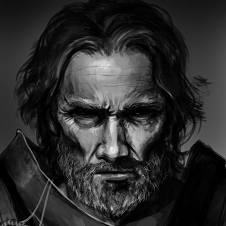-
Posts
38,403 -
Joined
-
Last visited
Content Type
Profiles
Forums
Events
Gallery
Everything posted by Ace-Garageguy
-
Ed's spectacular lightning photo above. Man. Nice. Remarkable getting the exposure at just the right moment of maximum intensity. You must have a really quick shutter finger, sir.
-
Headin' out to sit on the front porch with a big ol' root-beer float and listen to the crickets. Warm night, cool float...really takes me back to being a kid. Simple pleasures are still the best in my humble opinion.
-

3D printing quality
Ace-Garageguy replied to 59 Buick's topic in General Automotive Talk (Trucks and Cars)
The 1/35 guys will pay what it takes to do it. -
Stupidity and ignorance in the general population...but they have become so ubiquitous I sometimes think people now TRY to be morons...like it's somehow cool to be a know-nothing idiot.
-

3D printing quality
Ace-Garageguy replied to 59 Buick's topic in General Automotive Talk (Trucks and Cars)
The print files are translated directly from highly accurate laser scans of real people dressed in the period-correct gear. The prints are done directly from the translated scan files, so scale can be changed to whatever the client needs, instantly...these are NOT resin copies of 3D prints. Price, trimmed, is about $25 each. It will come down somewhat, but it takes time to do prints of this resolution. Time is money. A 20% discount is available to modelers who will trim their own pieces. As printed, still having supporting structures... -

Paint Fogging, Strange Reaction
Ace-Garageguy replied to StevenGuthmiller's topic in Model Building Questions and Answers
Only way you're going to get a definitive answer is from rigorous scientific testing. Repeatable. Recorded results. Anything else is just opinion, guesswork, repetition or anecdotal. -

Paint Fogging, Strange Reaction
Ace-Garageguy replied to StevenGuthmiller's topic in Model Building Questions and Answers
This sounds like it ought to be worth at least a couple hundred grand ($$$) government study. Though Art explained the mechanics of fogging due to humidity, your question as to why the areas of your model in contact with something didn't fog went largely unanswered. My best guess is that the support of the model or part forms enough (not much, obviously) of a heat-sink (heat source in this case) to ever-so-slightly stabilize the temperature of the part it's touching or near to, keeping the part in question from momentarily flashing below the 'dew-point' that causes micro-condensation on the surface of the model or part, and subsequent hazing. Having always polishes off the surface of lacquers, and is rarely even deep enough to affect the appearance of metallic particles in paint when it's polished carefully. As you've obviously already noticed, clear-coating kills the hazing too, though the clear itself may haze, needing a polish to remove it. The first time I encountered lacquer fogging was very early in my painting career. I was painting a real Alfa Romeo Duetto outside, under a parachute (for my booth), and just as I was shooting the last coat, it started to rain. The humidity skyrocketed, terrible fogging, and I thought I'd have to do the entire job over. Called it quits for the evening, came out in the morning and noticed, much as you have, that there were certain areas of the surface hardly hazed at all. On a whim, rubbed my finger over one of the worst-fogged areas. To my delight, it got somewhat better. Color-sanding and compounding made her beautiful again. EDIT: The fact you don't have the problem airbrushing is a key indicator. Most likely, the temperature drop of the compressed gas propellant in the spray-cans is more than the temp drop you're getting from airbrushing. I usually get minor blushing with Duplicolor paints, but since I know it will go away, I just don't worry about it. -
A little girl about 7 smiled and waved at me and yelled "HI!" as i drove by her and her mother getting in their car. I'd been in a crabby mood from the idiot can't-count moron at McD's, but the little girl kinda made my day. Kids are great. A free smile and a "hi" for no reason whatsoever.
-
Minimum pixel-count low-res version...
-
And a Magritte-inspired version..."ce ne sont pas les Beatles traversant la route"
-
-
Revell '65 Chevy Stepside pickup (40% off) to use as a donor for my old gluebomb-salvage AMT '60 cab. I know the chassis isn't exactly correct, but it would work in 1:1, and that's all right with me. Snagged the recent R2 '36 Ford release for $14.99 on the clearance table too. Really want to do a comparo between it and the original and re-release versions I have on the shelves. Interested particularly in the re-tooled (supposedly) chopped top. Pix of the chrome-reversed rims look good...we'll see... ...and several sheets of .005" red, blue, green and amber clear plastic sheet. Some gassers in the pipeline. Had to be over by Hobby Lobby anyway, so I bought these as a delayed-gratification reward to myself if i clean up the model bench, AFTER I clean up the big-car shop today.
- 38,767 replies
-
- johan
- glue bombs
-
(and 1 more)
Tagged with:
-

Could it be done (50/53 Cadillac)
Ace-Garageguy replied to om617's topic in General Automotive Talk (Trucks and Cars)
Seems like a really good idea, but it looks like the only Franklin '53 Caddies are convertibles. -

identifying the problem / paint question
Ace-Garageguy replied to ERIK88's topic in Model Building Questions and Answers
I've been in and out of the bodyshop business for over 40 years...mostly high-end collision and restoration work where quality was the most important goal...and your assertion that "time is money" in the biz, and that materials are developed specifically to speed the process is right on. HOWEVER, only a fool in the biz fails to read and go by the specific TDS for any given material (technical data sheet). Expecting one to behave like another you may be used to is just plain stupid, and certain to kill your profits. Specific materials require specific handling and techniques, and making generalizations isn't smart or helpful. NOTE: The OP's reference photo looks rather like "solvent popping", where solvents (the thinner in paint, NOT the propellant) is trapped under a too-quickly-dried surface from...surprise...forcing heat on paint before it's sufficiently gassed out, or from piling on successive coats before the underlying coats are sufficiently dry. As the surface is hard and impermeable to solvent vapor, the solvent still tries to get out. It forms little blisters or bubbles during its escape. It's a model. No angry client or insurance company is bugging you to get it done faster. But if you screw it up, you'll still do it over again for free. Don't rush it. -

identifying the problem / paint question
Ace-Garageguy replied to ERIK88's topic in Model Building Questions and Answers
I respectfully suggest you practice and develop your spray techniques BEFORE you paint models that you want to look good. Small plastic pop bottles make good test subjects. Do all your prep and paint steps the same as you do on a model. Find out what works, reliably, every time, and then stick to a known procedure with the same materials. Constant experimenting, mixing materials from various companies (without thorough testing first) and trying to rush-dry your paint are all disasters waiting to happen. It's a LOT more fun to do this stuff when you KNOW your paint will come out right. -

Auto ID #170 Finished
Ace-Garageguy replied to otherunicorn's topic in Real or Model? / Auto ID Quiz
I had a Lotus 7 S2 with a 1340. Never realized they came in the Consul Capri. The little 1340 with two side-draft Webers moved the 850-pound 7 pretty briskly, but I'd think the Consul would be somewhat, shall we say, sedate. -

Revell 57 Ford Sedan - Starting corrections
Ace-Garageguy replied to Sledsel's topic in WIP: Model Cars
Nice work. Very nice work. -

Could it be done (50/53 Cadillac)
Ace-Garageguy replied to om617's topic in General Automotive Talk (Trucks and Cars)
Beautiful old Caddy. Your plan is entirely possible, but one small problem is that the Franklin Mint pieces will be 1:24 scale, while the Modelhaus kit will be 1:25. This is not difficult for a competent modeler (who can make good masters) to deal with, but it may take some time to make a set of 1:24 parts, and downsize them to fit the 1:25 body, and still look right. -
Humidity's in the mid-30% range, tomorrow looks clear and coolish (mid-80s) and so does Sunday. Time to work on the Spyder...and maybe a model or three.
-
...Yeah, and the red urethane bushings in the engine mount too. The plug wires aren't '50s type. Look at Packard wire and Rajah ends. But the technology existed to build headers identical to those during the '50s. Borgeson steering joints were available, or aircraft-surplus types. The rod-end bearing supporting the steering shaft was available. I'm not sure about the availability of the double-D steering shaft. Still, who really cares? It probably goes like hell and is a blast to drive. Isn't that the real point of building stuff? It is to me, anyway.
-
It would fit in my last ex's purse.
-
And there's not a whole lot of guys who can work on a carb anymore anyway, much less an old Carter. At least an out-of-the-box Edelbrock clone ought to run OK with just a little effort and not much knowledge. I know, I know...peel off the sticker. But what's more annoying to a real hard-core picker of nits...an obvious Edelbrock with the sticker peeled trying to masquerade as a Carter, or an actual Edelbrock with an Edelbrock sticker?
